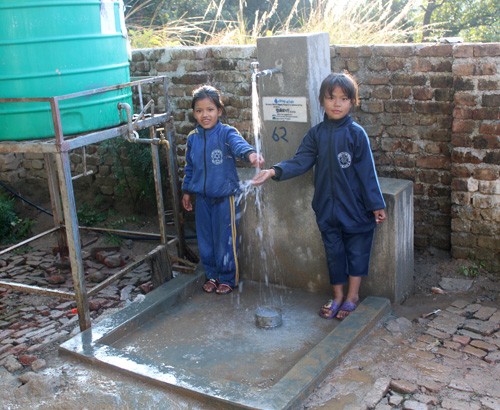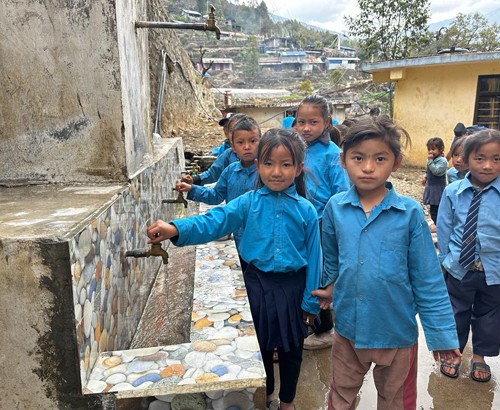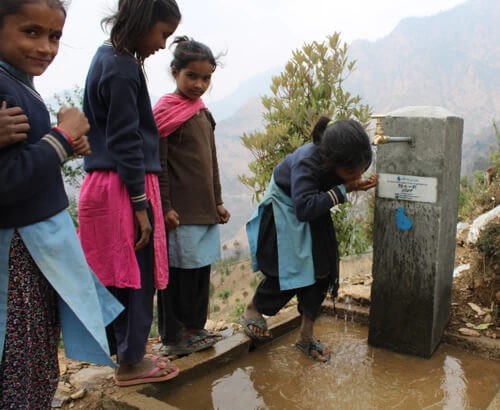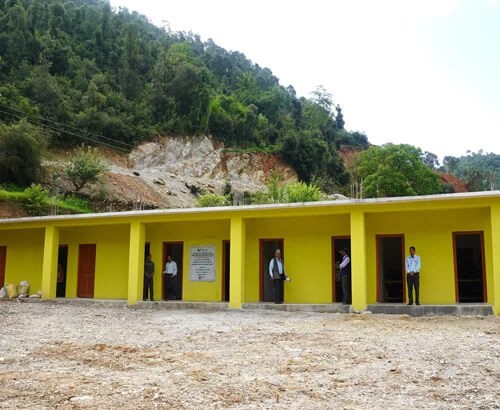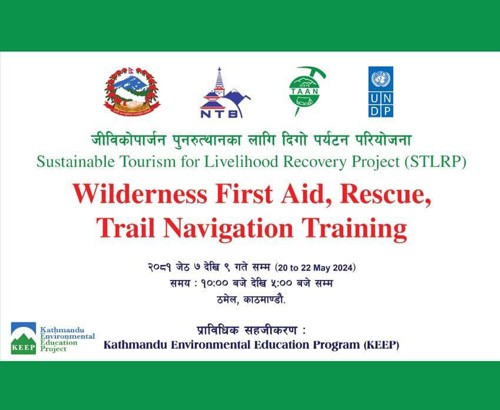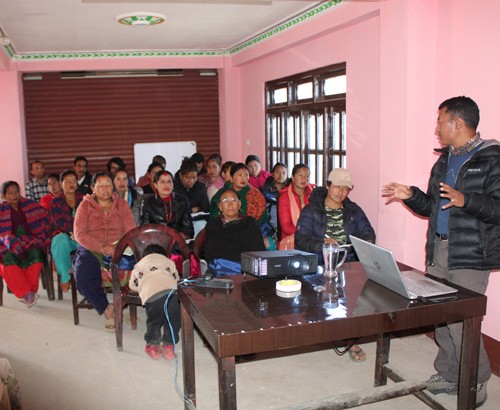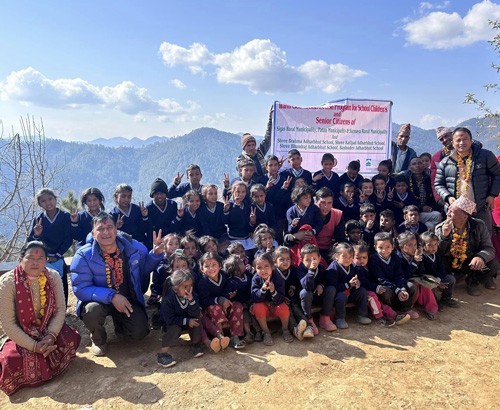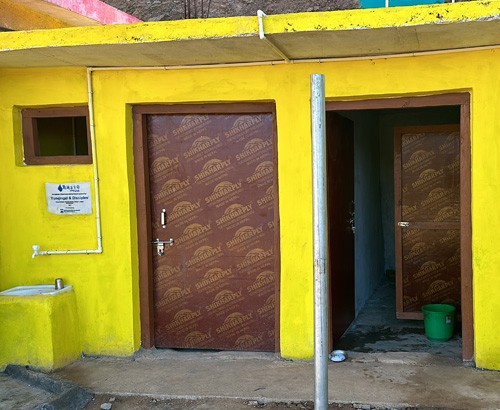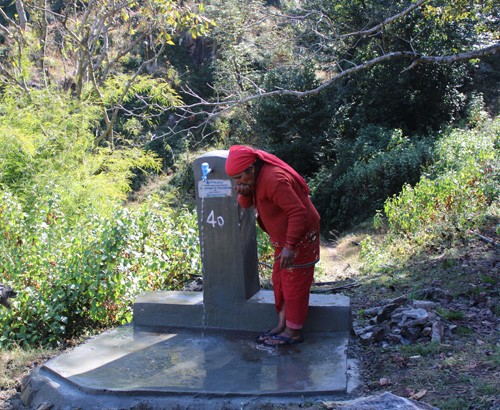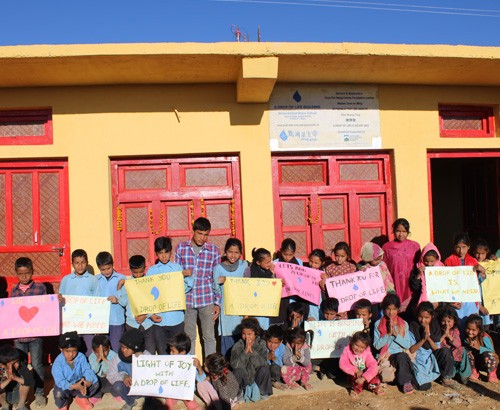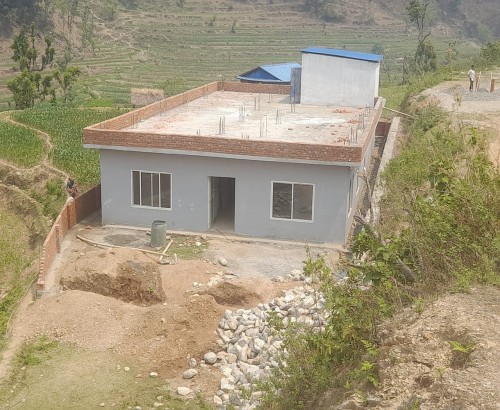Supporting the Development of Rural Communities:
KEEP’s Rural Community Development Program allows travelers to directly support local communities’ needs and gain a cultural understanding through home stays. It also aims to advance the United Nations Millennium Development Goals (MDGs) KEEP has conducted a number of small-scale community projects such as school renovations; water, sanitation and hygiene (WASH) programs; educational exchange, and environmental awareness activities.
A) In December 2013, with support from BridgIT Water Foundation, KEEP successfully conducted a water, sanitation, and hygiene (WASH) project that took place at the Shree Chandika Secondary School, and a local health center of Baruwa VDC, Sindhupalchowk district. In this remote school, children now have full access to water for drinking and washing hands. The water pipes not only run for the drinking water, but also for toilets, greatly improving hygiene.
B) In April 2014, with support from BridgIT Water Foundation, Australia, KEEP successfully conducted water, sanitation, and hygiene programs for the village and school children of the Baruwa and Lagarche, Sindhupalchowk district of Nepal. Students from both communities actively participated with an understanding of our water systems in relation to changing environments and to the adaptation measures. School children worked in groups and presented the issues, possibilities of conservation of water sources, and practical ways to keep our environment clean.
Completed Projects
A) In partnership with Aussie Action Abroad (AAA), Australia, in July 2013, KEEP completed the renovation of a defective classroom ceiling in the Shree Bag Bhairab High School and completed a ground leveling project to prevent further water seepage.
B) In December 2013, with support from BridgIT Water Foundation, KEEP successfully conducted a water, sanitation, and hygiene (WASH) project that took place at the Shree Chandika Secondary School, and a local health center of Baruwa VDC, Sindhupalchowk district. In this remote school, children now have full access to water for drinking and washing hands. The water pipes not only run for the drinking water, but also for toilets, greatly improving hygiene.
C) On September 20, 2016; The Edinburgh Global Partnership Project, in collaboration with KEEP, was successfully concluded. The project constructed a two-classroom school building to replace the old and structurally damaged classrooms of the Shree Saraswoti Primary School of Manpang village of Tanahun district, Nepal. EGP volunteers were involved in the program along with community leaders, school students, and staff. As a result, the school now has two new classrooms and has attracted more children to attend the classes.
D) On March 20, 2015, with the support of the Crooked Trails, USA, the construction work of a “Y” shaped staircase facility for school children was completed in Shree Bindabasini Secondary School, Jogitar, Kavre district. The school has been doing a
great job of educating local children, who have been achieving brilliant results in education
E) Oct 4-11, 2015 Crooked Trails (CT), a USA-based organization, supported a school renovation project at Jogitar, Kavre district, after the recent earthquakes. CT's 9 members actively participated are Karen Lang, Jeanette Smith, Jody Baush, Tanner Colton, Kolena Allen, Roslyn Erlewine, Anne Mc Cormack, Emi Mc Elroy, and Lyle Erlewine, who were involved in this earthquake recovery project to encourage education for local school children's bright future
F) April 4-8, 2016; a milk-station construction project supported by volunteers from Crooked Trails, USA has been completed. KEEP along with the community people participated in the project. The milk-station will help to make better the livelihood of the people of Jogitar Village in Kavre, Nepal.
G) Salang water project, supported by BridgIT foundation Australia. The project was conducted by KEEP with the help of local community, and, now, provides water to `114 households and 1 primary school. The total cost of the project was US $10,000.
Earthquake Resilient School Construction
A) In partnership with Aussie Action Abroad (AAA), Australia, in July 2013, KEEP completed the renovation of a defective classroom ceiling in the Shree Bag Bhairab High School and completed a ground leveling project to prevent further water seepage.
B) On September 20, 2014, The Edinburg Global Partnership Project, in collaboration with KEEP, was successfully concluded. The project constructed a two-classroom school building to replace the old and structurally damaged classrooms of the Shree Saraswoti Primary School of Manpang village of Tanahun district, Nepal. EGP volunteers were involved in the program along with community leaders, school students, and staff. As a result, the school now has two new classrooms and has attracted more children to attend. Also, EGP volunteers generously donated school supplies.
C) Staircase Constructed at School
On March 20, 2015, with the support of the Crooked Trails, USA, the construction work of a “Y” shaped staircase facility for school children was completed in Shree Bindabasini Secondary School, Jogitar, Kavre district. The school has been doing a great job of educating local children, who have been achieving brilliant results in education.
